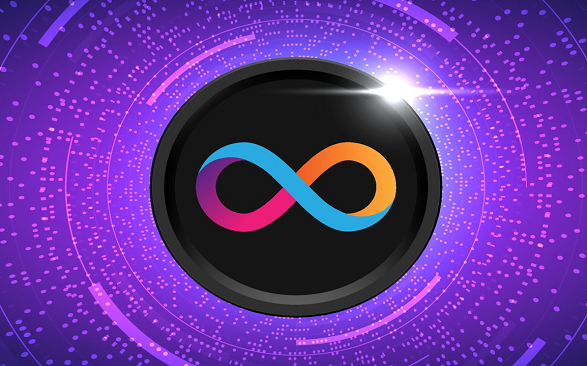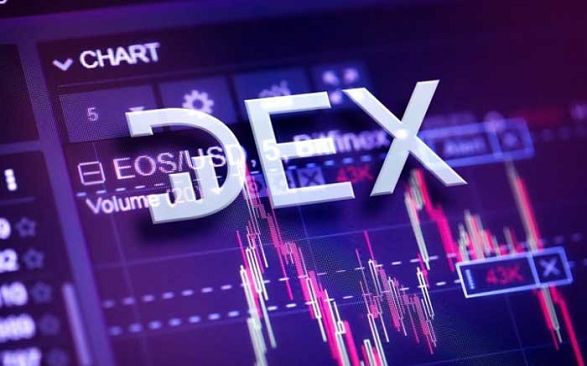In May 2021, a new project was added to the crypto and blockchain industry called Internet Computer. The revolutionary blockchain platform aims to change the way we view and use the internet. Think of it like a new layer of the internet that is more open and accessible to everyone.
Unlike the conventional mechanism where the Internet relies on centralized web servers and cloud services, Internet Computer uses a blockchain-based protocol to run software and host data. This means websites and decentralized applications can be built and run directly on the platform, making them faster, more secure, and less reliant on big tech companies.
To this effect, the ICP project which leverages distributed ledger technology to create a decentralized, open, secure and user-centric Internet has quickly gained popularity, with its native token—ICP—boasting a market capitalization of over 1.35B as of October 2023. In this article, we provide you with a detailed review of Internet Computer and how it works. Also included are present challenges to ICP adoption.
What is the Internet Computer?
Internet Computer is a blockchain-based platform that uses smart contracts to host data and run software to create a more open, decentralized, and user-centric Internet. Powered by the so-called Internet Computer Protocol (ICP), the core part of the Internet Computer is a 4-layer protocol that runs on the nodes of each subnet. These four layers comprise Peer to Peer, Consensus, Message routing, and Execution.
The project seeks to enable a new generation of internet services where data and computation are more open, accessible, and less controlled by a few large companies. Leveraging blockchain technology to ensure transparency, decentralization and security, ICP aims to reduce reliance on traditional data centres and cloud services. Thus, the platform is made up of nodes that work together to run web applications, making them resistant to censorship and control by a single entity.
In particular, ICP brings autonomous serverless cloud capabilities to the public internet, allowing developers to create a wide range of decentralized applications, Web3 services, and enterprise systems on a decentralized network that scales even to hosting social networks and media streaming. Notably, ICP is presently adding support for Web3 “AI compute units.” This means that in the near future, AI will also run on the network, supporting native Web3 integrations, and trustless combinations of models and data.
How does Internet Computer work?
The groundbreaking project depends on some key concepts to function and realize the vision of a World Computer. These include canister smart contracts, subnet blockchain and Chain Key technology amongst others.
- Canister Smart Contracts
Internet Computer allows developers to create smart contracts using the Motoko programming language. These smart contracts can run on the network and power decentralized applications, similar to how Ethereum’s smart contracts work. Notably, smart contracts on Internet Computer are known as canister smart contracts or canisters.
Instead of traditional web servers, Internet Computer uses “canisters” to host applications. Canisters are simply high-performance smart contracts that can be used to build anything such as play-to-earn (P2E) games and cross-chain bridges. They are also described as independent, self-contained units that can run software.
The canister software greatly simplifies the development and maintenance of online systems and services. Hosted on Internet Computer’s subnets, these high-performance smart contracts can interact with HTTP, Web2, and external blockchains, making canisters a compelling alternative to building on centralized traditional IT. More so, they support more powerful tokenization models that advance Web3.
Read also: What is Smart Contract and Its Use Cases?
- Subnet Blockchain
For blockchain networks such as Bitcoin and Ethereum, all transactions are processed on a single blockchain. This approach has a limitation in terms of scalability and performance. To tackle the issue of scalability, Internet Computer is designed to process transactions using the so-called “subnet blockchains.” This makes subnets the top-level architectural building block of Internet Computer.
For the uninitiated, a subnet is an independent blockchain, running on node machines, or nodes, deployed in globally-distributed data centres. As a matter of fact, one subnet can host tens of thousands of canister smart contracts, equivalent to hundreds of gigabytes of memory.
Thus, ICP combine node machines into highly efficient subnet blockchains to enhance the platform’s capacity for hosting tamperproof canisters. These subnet blockchains are smaller, interconnected chains that run alongside the main Internet Computer blockchain.
Subnet blockchains allow for parallel processing of transactions and smart contracts. This means that instead of a single queue for processing all activities, multiple tasks can be handled simultaneously within different subnets. Additionally, subnets are isolated from each other. Therefore, when one subnet encounters an issue, it does not affect other subnets. With this, the overall stability and security of a network is guaranteed.
- Chain-Key Technology
Internet Computer’s chain-key technology comprises chain-key cryptography, chain-key signatures, and chain-key tokens. To achieve functionalities and scalability that are impossible on other blockchains such as Cardano, Vechain, Binance Smart Chain, Bitcoin Cash, Ethereum etc, ICP utilizes chain-key cryptography—a toolbox of advanced cryptographic mechanisms.
On the other hand, chain-key signatures allow Internet Computer to integrate with other blockchains without needing any cross-chain bridges. Chain-key signatures further enable transactions targeted at other blockchains to be computed fully on-chain using ICP.
Meanwhile, chain-key tokens are a cryptography-based replacement for wrapped tokens. Using this concept, tokens from another blockchain can be available for transfers and trading on the Internet Computer network while eliminating the risks associated with the traditional intermediary-based token wrapping.
- Governance
Governance of the Internet Computer platform is accomplished through a tokenized decentralized autonomous organization (DAO), which is called the Network Nervous System (NNS). Meanwhile, ICP makes use of a consensus algorithm mechanism known as Threshold Relay. This mechanism is designed to provide fast, efficient, and secure consensus among the nodes in the network. It eliminates the need for energy-intensive mining.
Who founded ICP?
Launched and open-sourced on 10 May 2022, ICP was developed by the DFINITY Foundation, a non-profit organization led by Dominic Williams. According to Williams, the idea to create the Internet Computer network came after he realized that blockchain isn’t just for cryptocurrency purposes but can be used to host code and data computation. Though founded by DFINITY, the Internet Computer network is controlled and governed by ICP token holders.
Read also: What is Web3? Understanding Its Ecosystem and Pros and Cons
What makes ICP Unique?
Below are some of the factors that make ICP distinct from the many other blockchains:
- Green blockchain: As the world battles with climate change, more emphasis has been placed on environmental responsibility. Therefore, there is a need for blockchain and cryptocurrency projects to adopt eco-friendly practices. With this, Internet Computer network has taken an approach to provide an energy-efficient computing platform by adopting the Threshold Relay consensus mechanism which reduces energy consumption. Additionally, this mechanism significantly reduces Internet Computer network’s carbon emissions, addressing the central carbon footprint criticism of the industry.
- Impressive Web Speed: For decentralized applications (DApps), speed is essential. ICP’s impressive web speed enhances the performance of dApps, making them more competitive and user-friendly. This advantage allows developers to create powerful applications that can compete with traditional web services.
The platform’s high-speed capabilities also ensure that web applications and decentralized systems operate seamlessly. This provides users with an efficient and responsive digital experience. High speed is important, especially as modern users demand faster and more reliable interactions with online services. ICP offers low latency and high throughput. Also, its query calls are answered in 100 milliseconds and update calls in 2 seconds. This impressive speed is a result of the platform’s chain-key cryptography.
Moreover, the Internet Computer network processes about 11,000 transactions per second, making it one of the fastest blockchain networks in existence.
- Reverse Gas Model: For some blockchains, users must have their wallet set up with tokens to pay gas fees for each on-chain interaction. To remove this expensive method, ICP introduces the reverse gas models. This model allows end users to access and use dApps without tokens while developers pay for gas fees. For developers, canister smart contracts are pre-charged with Cycles. These cycles simply represent the computational work needed to run a smart contract or execute a transaction. New developers can get 20T free cycles from the cycle faucet. These free cycles can only be used for computation and storage.
- ICP Connects Web2 and Web3 with no Oracles: In blockchain technology, oracles have traditionally served as intermediaries, which help the flow of external data into smart contracts and dApps. Oracles have been indispensable in providing real-world data to blockchain systems, but they have also introduced complexities, vulnerabilities, and potential trust issues.
ICP directly bridges the worlds of Web2 and Web3, allowing the seamless flow of data without the need for intermediaries. This helps to simplify data flows, making them more efficient, direct, and less susceptible to errors. Importantly, it ensures the authenticity of data as it flows naturally between Web2 and Web3, preserving the integrity and trustworthiness of information.
Besides, ICPs’ unique ability to connect Web2 services and the decentralized Web3 makes it possible for them to be used for various things. These include finance, data management, supply chain, gaming, and more.
What is ICP?
ICP is the native currency of the Internet Computer network. The utility token is used for a variety of functions in the ecosystem including staking, incentivization and governance. ICP holders can stake their tokens for rewards. In turn, staking allows community members to participate in the governance of the Internet Computer platform. On the other hand, developers need ICP to purchase the so-called cycles to power their decentralized applications on the IC. Likewise, node providers on the IC network are incentivized for their provision of compute power to the IC network using ICP tokens.
At the time of writing, ICP has a total supply of 508,109,520 tokens according to Coingecko data. Listed on several top crypto exchanges including Binance and Coinbase, ICP attained its all-time high of $700.65 in May 2021.
The Challenges
- New and Uncertain: ICP, at least relatively, is still in its early stages. Being a relatively new technology, its adoption and growth may face technical challenges. This may result in some level of risks. Besides, the idea of Web3 and dApps—a world where censorship and centralization are expected to be absent—are still in their early stages. Even if adoption were certain, this may still require time. Can investors hold?
- Decentralization: ICP is not completely permissionless. This is because the ICP project relies on data centers, not consumer hardware as most other blockchains do. These data centers may only participate in governance if voted in by holders who have staked the ICP token. In other words, governance decisions are by a select few i.e. those with relevant assets or significant persons.
- Limited Track Record: Considering that Internet Computer was only founded in 2021, it is difficult to assess its long-term performance. While one could predict its future growth or consider its potentials, ICP is yet to have the numbers one requires to determine growth. This is not to say that ICP does not have strong fundamentals.
- High Competition: The altcoin market continues to add more projects and coins, creating a highly competitive—and largely dense—market for ICP. It is increasingly difficult to spot gems in the crypto market, even if one limits himself or herself to decentralized applications.
- Regulatory Risks: As with most cryptocurrencies—if not all cryptocurrencies—the regulatory landscape is still largely unclear and uncertain. This continues to have a negative impact on the adoption and growth of cryptocurrencies generally. ICP is not expected to be different.
- High Volatility: Synonymous with cryptocurrencies is volatility. At the current growth stage of the crypto market, if it’s not volatile—except we speak of stablecoins which also experience volatility though—it isn’t cryptocurrency. If the first and biggest cryptocurrency, bitcoin, remains volatile till date, ICP is not expected to attain stability without first experiencing the inherent volatilities often associated with cryptocurrencies.
Conclusion
Besides its unique features and innovative technologies, the Internet Computer project stands out among many blockchain projects for actualizing the idea of a World Computer—an open and secure blockchain-based network capable of hosting programs and data in the form of smart contracts and performing computations on smart contracts securely. Regardless, investing in ICP comes with risks as with every other digital asset in the market.
The crypto market—and ICP is no exception—is highly volatile. Therefore, do your own research and assess your risk tolerance. Generally, it is best to diversify your investment portfolio. Also, never invest more than you can afford to lose.
Read also: Introduction to Polygon and Its Ecosystem
Credit: Ndianabasi Tom
A crypto journalist and content writer who has been talking about cryptocurrency and blockchain technology since 2018, Ndianabasi is a Writer at Crypto Asset Buyer (CAB).
Discover more from Crypto Asset Buyer
Subscribe to get the latest posts sent to your email.





